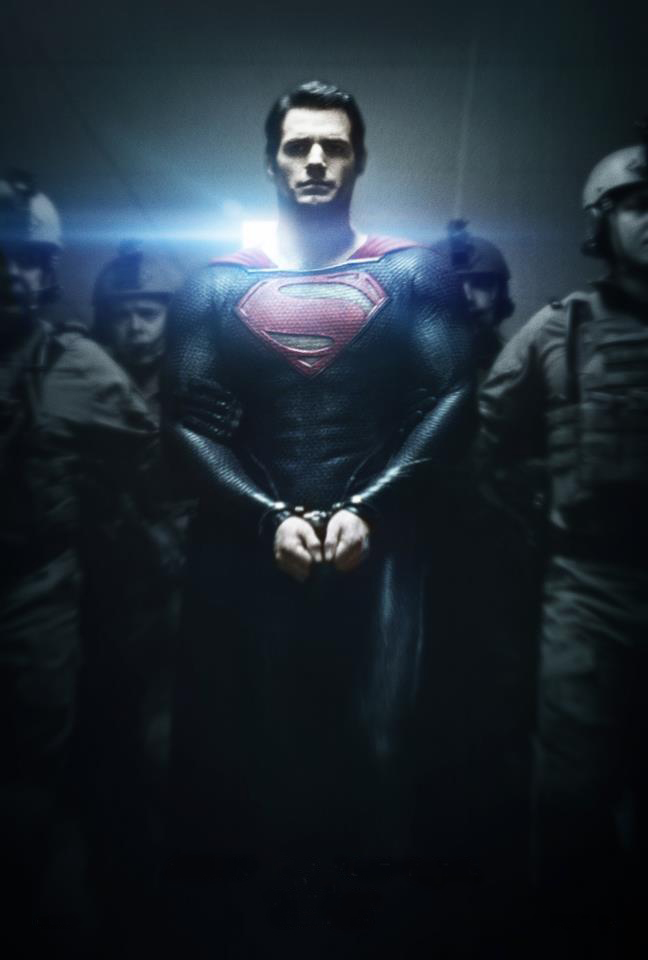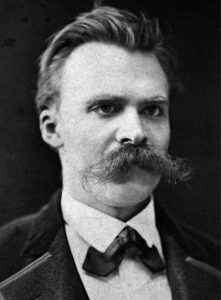
 This June, Warner Brothers relaunched the Superman film franchise with the release of Man of Steel. This interpretation of the Superman story takes a different approach to the revelation of the “strange visitor from another planet” with “powers and abilities far beyond those of mortal men.” In the new film, unlike previous treatments of the story, society reacts to the appearance of Superman with fear and distrust.
This June, Warner Brothers relaunched the Superman film franchise with the release of Man of Steel. This interpretation of the Superman story takes a different approach to the revelation of the “strange visitor from another planet” with “powers and abilities far beyond those of mortal men.” In the new film, unlike previous treatments of the story, society reacts to the appearance of Superman with fear and distrust.
Can this new spin be taken as a metaphor for society’s perspective on gifted people? There are certainly parallels between the two that can be explored.
In Pursuit of Realism
The current take on the mythology of Superman is designed to be a more realistic view of how such an extraordinary man would be greeted in the modern world. In a recent interview, Russell Crowe, who plays Superman’s father, Jor-El, mentioned the “realistic” reaction to Superman:
“It’s really complicated, it’s really complex. I don’t think anyone’s really tried to get into the psychology of what it must be like to be Superman. And [how] people would really respond in a modern society if someone like that popped up.”
This idea is further elaborated on by David Goyer, the screenwriter:
“Christopher Nolan and I have been trying to bring the naturalism of the Batman trilogy. Our approach has always been naturalist, realistic; we always try to imagine these stories as if they could happen in the same world in which we live. It is not an easy thing with Superman, and this does not necessarily mean that it will be a dark film, but in working on this reboot we are thinking about what would happen if a story like this really happened. How would people react to this? What impact would the presence of Superman in the real world have?”
And for that matter, what would the impact of the world have on such an extraordinary person? Actor Henry Cavill, who plays Superman, touched on that point and the subject of giftedness when talking to the New York Times about his perspective on the role:
“Perfection without effort is, in itself, not perfection – it’s just gifted. Just being right because you exist isn’t interesting. Doing the right thing, through hard work and the right decisions, is a better character.”
The Rise of the Übermensch
In a previous post, I wrote about the negative reaction of some members of society toward the gifted, and that the source of such antipathy was often hatred of the good. In that post I mentioned philosopher Ayn Rand’s (the author of Atlas Shrugged) perspective, who championed the concept of the ideal man. Superman, in many ways, is her John Galt character on steroids. Rand argued that those average people who are critical of exceptional people don’t envy the good but instead seek the destruction of them for the value they represent.
That exemplifies just one reason that some people may hate the gifted. In my perspective, there is a second reason for society’s negative reaction, and that reason is fear.
If the people of society tend to resent people who are better than average, what might they think of someone who is smarter, stronger, faster, and more resilient than anyone else? The existence of such a person, der Übermensch (or the Superman), and society’s reaction to him, was considered by the philosopher Friedrich Wilhelm Nietzsche in his philosophical writings, particularly in Thus Spake Zarathustra, where he introduced the concept of the Superman.

The usage of the comic book character’s name to describe Nietzsche’s concept is not happenstance; the comic book character’s co-creator, Jerry Siegel, appropriated it from Nietzsche’s writings. Therefore, Superman takes his name from Nietzsche and, like the Übermensch, he represents the pinnacle of human potential. And such an extraordinary man can prove threatening to society.
What is it that society might most fear about a Superman or any exceptionally gifted person for that matter? Can it be that society fears the exceptionally gifted because they sit so far outside of the norms of society that they may not feel subject to its traditions, its laws, and its morality? The exceptionally gifted can potentially reject the social contract of Hobbes and Rousseau, the contract that binds all men and women together and makes civilization possible. Therefore, the exceptionally gifted become a threat to society and are seen, in some cases, as the boogeyman – a mythical character to be feared. A perfect example of this is in the literary and cinematic character of Hannibal Lecter, who scares us so much because he is profoundly gifted and unbound by society’s morality. He is the vision of what could go wrong with the gifted. Now imagine if he could stop bullets.
We may have Nietzsche himself to thank for fostering such fear of exceptional people. In his book, Beyond Good and Evil, Nietzsche posited that there were two types of morality: master morality and slave morality. Master morality is a morality of aristocracy, strength, and nobility. In the Nietzschian view, Superman represents the master morality. Slave morality is the morality of the masses (or the herd, as Nietzsche called it), the weak, and the powerless. In slave morality, according to scholar Frederick Copleston, “Strong and independent individuals are regarded as dangerous, and therefore as evil.” Because the Übermensch creates his own values, “the meek and powerless fear the strong and powerful, and they attempt to curb and tame them by asserting as absolute the values of the herd.”
Nietzsche’s concept of the Superman was seized upon by Adolph Hitler and the Nazi party and used to justify their idea of the Aryan master race. His ideas were also appropriated by the Eugenics movement and anarchists. These relationships forever tainted Nietzsche’s philosophy and cemented (in the collective psyche of society) the association between the Übermensch ideal and human rights abuses. Further poisoning the relationship between the Übermensch and society, in 1924, two wealthy and intellectually-gifted Chicago college students, believing themselves to be Nietzschian Supermen “exempt from the ordinary laws which govern men”, murdered a 14-year-old boy in an attempt to commit the perfect crime.

Exploration of a Theme
In a preview of the film, the Superman character can be seen telling a military official: “You’re scared of me because you can’t control me. But that doesn’t mean I’m your enemy.” It is the fear of the “strong and powerful” that appears to drive society in the new Man of Steel film and ties it to the issue of giftedness. The titular character’s adoptive parents actively shield him from discovery, worried about how society might treat him. Clark Kent spends his formative years trying to fit in, to hide his giftedness. But when he becomes Superman, like the gifted child or adult, he has the audacity to reject the conformity of society. Even his defiance of the law of gravity can be seen as a rejection of all laws that bind men and women to the Earth.
The metaphor of the exceptional man against society is not necessarily new to literature or gifted studies. Ayn Rand’s Atlas Shrugged has already been mentioned as one example. In another example, a frequently cited literary short story by author Kurt Vonnegut, titled Harrison Bergeron, imagines a world where exceptionalism is outlawed. The protagonist is profoundly gifted, even possessed of abilities similar to Superman, and is an unapologetic apostate. The archons of his society, seeing the threat he poses to the status quo, mobilize to ensure his destruction.
Noted researcher in the field of gifted studies, Tracy Cross, in his book On the Social and Emotional Lives of Gifted Children, calls Vonnegut’s story “instructive” for the field. Vonnegut’s story plays on society’s fears of the exceptional and the desire of the herd to make every person equal, so that no one stands above another. Writes Cross: “The uninformed and superficial understandings some people have regarding the meaning of equity have created impediments to students with gifts and talents. For many, equity means equal – it has been interpreted to mean ‘the same as.'”
A change in the Superman origin in the new movie ties it further to Harrison Bergeron. In the film, the baby who would become Superman is the first baby born on Krypton who was not engineered to serve a particular function in society. This is considered a crime and the character of Zod hunts him for that reason. This story point reinforces the giftedness metaphor, with Zod serving a similar role to that of the Handicapper General in Vonnegut’s story.
Yet another literary exploration of giftedness bears a much stronger connection to Superman, as his co-creator Siegel borrowed heavily from it. Novelist Philip Wylie’s 1930 book Gladiator tells the story of Hugo Danner, whose scientist father experiments on his pregnant mother to produce a child with extraordinary abilities, exactly like those Superman possesses when he is introduced eight years later. In that story, Danner is raised to hide his abilities from the public lest he be tormented for them. The novel’s central theme is about an extraordinarily gifted man and his inability to express those gifts in a world that would not accept him. The Princeton Review, in its 1930 review of the novel, stated that the “gospel of Superman undoubtedly appealed to Mr. Wylie, not from love of Nietzsche, but because his own vitality seeks fulfillment.” The review went on to acknowledge the connection between how the character is treated in the novel and how the gifted are treated in reality, saying, “the frustration of this Samson by the jealousy and fear of his weaker fellow men is a bitter sociological commentary on the stupidity and greed of the world.”
When asked about the origins of the story, Wylie offered this: “A temperamental consciousness of material force brought Hugo Danner into being. The frustration of my own muscles by things, and the alarming superiority of machinery started the notion of a man who would be invincible. I gave him a name and planned random deeds for him. I let him tear down Brooklyn Bridge and lift a locomotive. Then I began to speculate about his future and it seemed to me that a human being thus equipped would be foredoomed to vulgar fame or to a life of fruitless destruction. He would share the isolation of geniuses and with them would learn the inflexibility of man’s slow evolution.”
Conclusion
So it appears that the story of Superman (as portrayed in The Man of Steel) is an apt metaphor for society’s view of the gifted. In the film, society reacts to his appearance with fear and distrust, just as it is sometimes known to do with the gifted. But, in the case of Superman, the gifted man turns out to be society’s savior. Perhaps the new film can serve as a catalyst for discussion about the positive role that the gifted play in our society, and how their presence benefits all of humankind.
“My father believed that if the world found out who I really was they’d reject me out of fear.
He was convinced that the world wasn’t ready. What do you think?”
